International
Governor of the Mexican state of Sinaloa is separated from the meeting that resulted in the capture of ‘Mayo’ Zambada
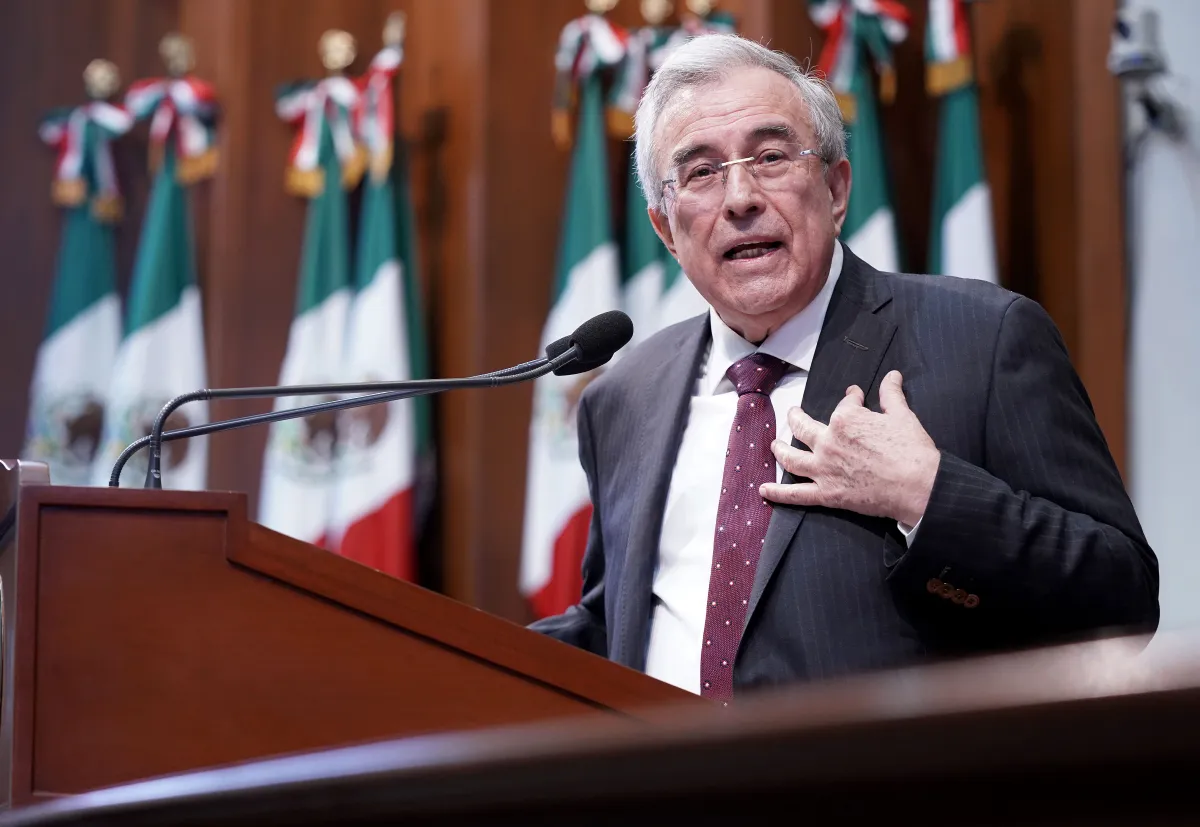
The governor of the Mexican state of Sinaloa, Rubén Rocha Moya, rejected any link with drug trafficking, as well as being part of an alleged meeting with Ismael ‘el Mayo’ Zambada, co-founder of the Sinaloa Cartel, and Joaquín Guzmán López, his former partner, which resulted in the capture of the capo by the US authorities.
“We have no complicity with anyone (…) therefore, if they said that I was going to be (at the meeting), then they lied, and if he believed them (May), then he fell into the trap,” said the governor, who spoke about the issue in the company of the Mexican president, Andrés Manuel López Obrador, and the president-elect, Claudia Sheinbaum, who toured the state of Sinaloa.
His position is given after El Mayo made public a statement in which he maintains that he was ambushed by the son of the Mexican drug trafficker, Joaquín ‘el Chapo’ Guzmán, to be taken to the United States, after being called to a meeting to resolve “a dispute” with the governor of the state of Sinaloa and former congressman Héctor Melesio Cuén.
In addition, he asked President López Obrador for the Attorney General’s Office (FGR) to attract the investigation of the murder of Cuén, who according to Zambada’s letter, would have been killed in the same place where he was kidnapped in May, contrary to the official versions.
The governor of Sinaloa pointed out that he would be “more satisfied” if an investigation were carried out with “greater impartiality,” so that “there are no suspicions of any nature.”
“We don’t want to be under suspicion, there’s no reason for that,” he insisted.
Regarding the alleged meeting he would attend, Rocha Moya clarified that he was never called to resolve any dispute, as held by May, since he even mentioned that he was out throughout July 25 and returned in the early hours of the following day.
In addition, he positioned that the problems of the state he leads are solved through the institutions of the Government, while he accused that he is sought to “force-force drug trafficking” for being originally from Badiraguato, the cradle of important Mexican drug lords such as El Chapo or Rafael Caro Quintero, among others.
He said that this is a stigma that is held on people from this town in northern Mexico and defended that, on the contrary, the people of Badiraguato and the state of Sinaloa “are good, hardworking people.”
He also considered that this type of case seeks to tarnish his image “and in passing” that of President López Obrador.
For her part, Claudia Sheinbaum said that support for Governor Rocha Moya will be maintained during her term, which will begin on October 1, as well as to her population in northern Mexico.
“Whoever wants to stigmatize this beautiful state, stay with its history, because men and women of Sinaloa are good Mexicans and Mexicans, men and women of work,” he said.
During the event, President López Obrador endorsed his support for the governor of Sinaloa, while congratulating him for “shiting his face” and not waiting a day to clarify Zambada’s alleged statements.
“We have all the confidence in the governor of Sinaloa, Rubén Rocha Moya, and I congratulate him because he shows his face he didn’t let a day go by,” he concluded.
International
Sheinbaum highlights anti-drug gains after U.S. says challenges remain
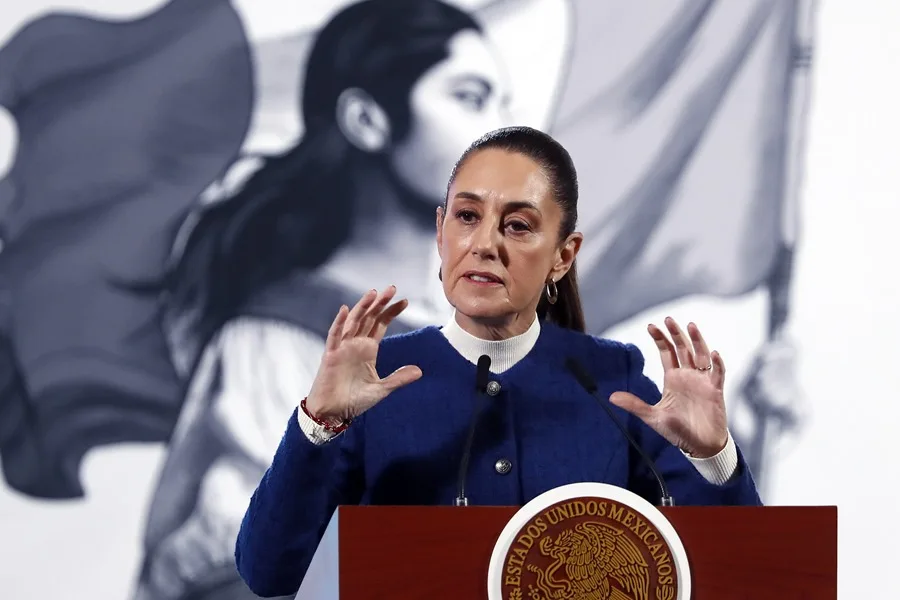
Mexican President Claudia Sheinbaum on Friday highlighted her government’s achievements in the fight against drug trafficking, after the United States said challenges remain in combating organized crime.
On Thursday, Mexican Foreign Minister Juan Ramón de la Fuente held talks with his U.S. counterpart, Secretary of State Marco Rubio. Following the meeting, the U.S. State Department said in a statement that “despite progress, challenges still exist” in addressing organized crime.
“There are very strong results from joint cooperation and from the work Mexico is doing: first, a 50% reduction in fentanyl seizures at the U.S. border,” Sheinbaum said during her regular morning press conference.
The president also said that authorities have seized nearly 320 tons of drugs and that there has been a “40% decrease in intentional homicides in Mexico” since the start of her administration on October 1, 2024.
Sheinbaum added that the United States should implement campaigns to reduce drug consumption within its territory and curb the flow of weapons into Mexico.
“There are many results and there will be more, but there must be mutual respect and shared responsibility, as well as respect for our sovereignties,” she said.
On Monday, Sheinbaum held a phone call with U.S. President Donald Trump to discuss security issues. She said she once again ruled out the presence of U.S. troops in Mexico to fight drug cartels.
Security has been a recurring issue used by Trump to threaten tariffs on Mexico and to pressure negotiations over the USMCA (T-MEC) free trade agreement, which are scheduled for 2026.
The agreement is crucial for Mexico’s economy, as about 80% of the country’s exports are destined for the United States.
International
Canada accuses Iran of killing its citizen during anti-government unrest
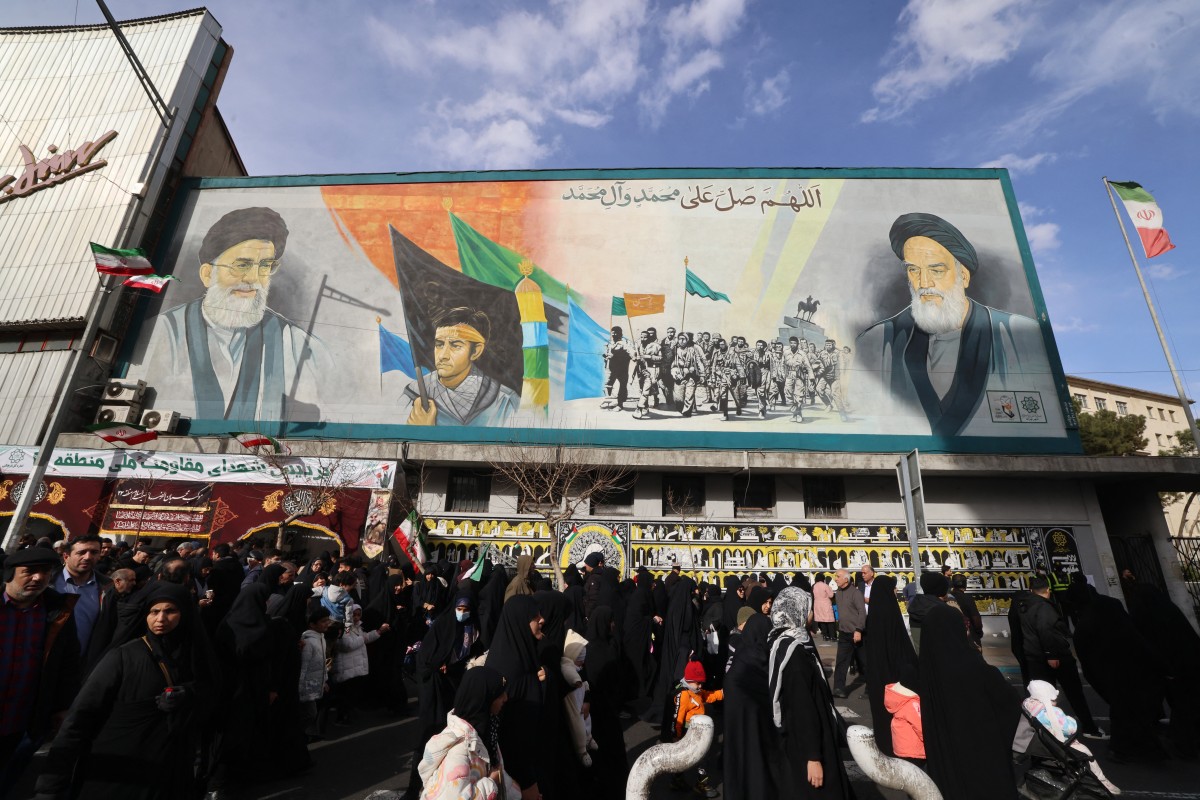
A Canadian citizen has died “at the hands of Iranian authorities,” the Canadian government said on Thursday, amid ongoing protests against the government in Tehran.
“I have just learned that a Canadian citizen has died in Iran at the hands of Iranian authorities,” Canada’s Minister of Foreign Affairs, Anita Anand, said, without providing further details. She added that Tehran’s response to what she described as “peaceful protests” has “led the regime to show a blatant disregard for human life.”
On Thursday, the United States imposed sanctions on Iranian security officials and individuals linked to the country’s banking networks, accusing them of orchestrating a violent crackdown on peaceful demonstrations and laundering billions of dollars in oil revenues. U.S. Treasury Secretary Scott Bessent announced the measures following what were described as the largest anti-government protests in the history of the Islamic Republic, although demonstrations have reportedly eased in recent days amid heavy repression and a near week-long internet shutdown.
“The United States stands firmly with the Iranian people in their pursuit of freedom and justice,” Bessent said in a statement, adding that the sanctions were imposed at the direction of President Donald Trump.
Those sanctioned include Ali Larijani, secretary of Iran’s Supreme National Security Council, whom Washington accused of coordinating the repression and the use of force against protesters.
International
Ukraine declares nationwide energy emergency amid russian attacks and extreme cold
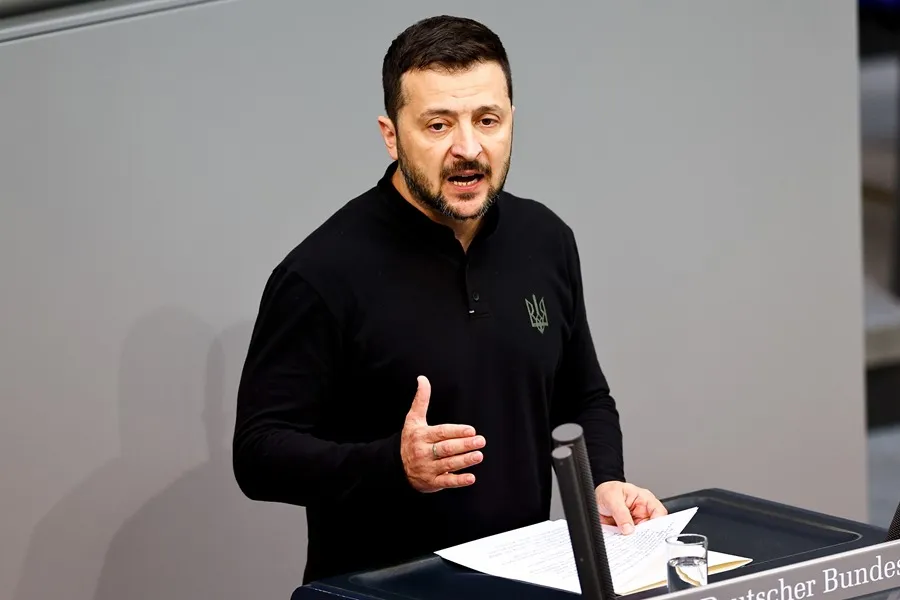
The Ukrainian government on Wednesday declared a nationwide energy state of emergency amid continued Russian military attacks and extreme winter weather, with nighttime temperatures dropping as low as minus 18 degrees Celsius.
“The consequences of Russian attacks and worsening weather conditions are severe (…) Overall, a state of emergency will be declared for Ukraine’s energy sector,” Ukrainian President Volodymyr Zelensky said in a statement posted on social media following a meeting with senior officials.
Zelensky announced the creation of a “permanent coordination headquarters” to manage the crisis in the capital, Kyiv, and tasked former defence minister and current energy chief Denys Shmyhal with overseeing support efforts for affected individuals and communities, including addressing power outages, heating shortages and other “practical issues.”
“There are many problems that require urgent solutions,” the president said, noting that repair crews, energy companies, municipal services and the State Emergency Service are working “around the clock” to restore electricity supplies. Kyiv has been particularly affected after Russian strikes last Friday disabled key parts of the power grid, as daytime temperatures hover around minus 12 degrees Celsius and plunge to minus 18 at night.
Zelensky added that public authorities will “maximize efforts with partners to obtain the necessary equipment and additional support,” while the government will ensure “maximum deregulation of all processes” to speed up the connection of backup power equipment to the grid. He also confirmed that work is underway to significantly increase electricity imports into Ukraine.
The Ukrainian leader further instructed his Cabinet to review curfew regulations in light of the extreme cold, arguing that citizens must have the greatest possible access to assistance centers, while businesses should be given flexibility to plan their operations according to the state of the energy system.
-

 International3 days ago
International3 days agoDeadly van accident near Brazil border leaves 11 dead in Bolivia
-

 International3 days ago
International3 days agoU.S. to host Danish and Greenlandic Foreign Ministers at the White House
-

 Central America4 days ago
Central America4 days agoU.S. and El Salvador maintain close partnership, embassy says
-
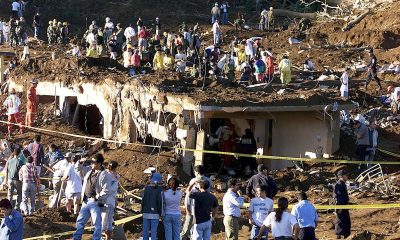
 Central America4 days ago
Central America4 days agoTaiwan’s $10 million donation after 2001 earthquakes allegedly diverted in El Salvador
-
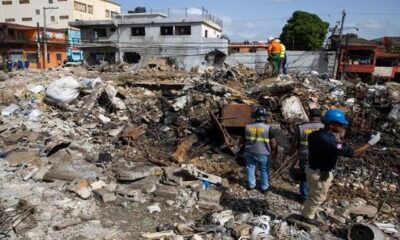
 International3 days ago
International3 days agoDominican court postpones hearing in deadly nightclub collapse case
-

 International3 days ago
International3 days agoPolice hunt gunmen after fatal shooting in Corsica
-
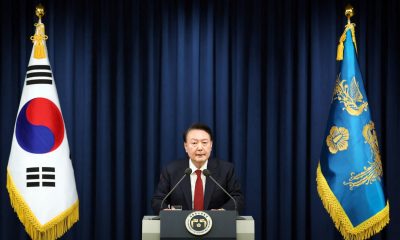
 International3 days ago
International3 days agoEx-President accused of bid to establish dictatorship as verdict nears in South Korea
-

 International3 days ago
International3 days agoVenezuelan opposition leader dedicates Nobel Prize to Trump
-
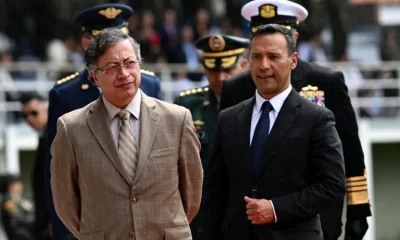
 International3 days ago
International3 days agoColombian Defense Chief Meets U.S. Officials to Advance Bilateral Narcotics Strategy
-

 International2 days ago
International2 days agoIran closes airspace amid U.S. threats and deadly nationwide protests
-

 International2 days ago
International2 days agoUkraine declares nationwide energy emergency amid russian attacks and extreme cold
-
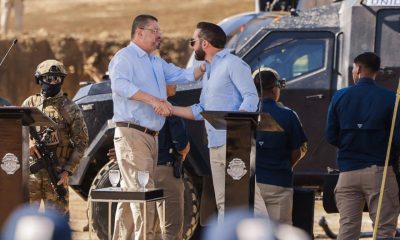
 Central America2 days ago
Central America2 days agoBukele warns crime can become a ‘parallel government’ during visit to Costa Rica
-

 International2 days ago
International2 days agoX moves to block Grok from creating sexualized images of real people amid legal scrutiny
-
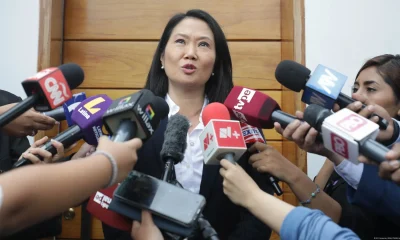
 International3 days ago
International3 days agoPeruvian Court Orders Definitive Dismissal of Money Laundering Case Against Keiko Fujimori
-

 International2 days ago
International2 days agoFrance joins Denmark’s ‘Operation Arctic Resistance’ in Greenland amid U.S. tensions
-

 International2 days ago
International2 days agoU.S.–Denmark tensions escalate as Trump pushes NATO to back U.S. claim on Greenland
-
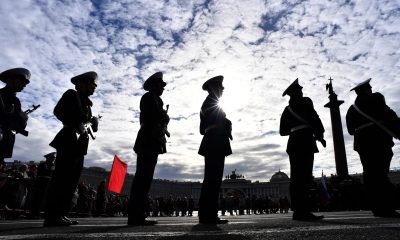
 International2 days ago
International2 days agoUK Intelligence estimates russian casualties in Ukraine at over 1.2 million
-
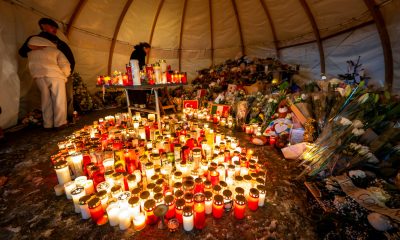
 International2 days ago
International2 days agoSwiss Canton of Valais Grants Emergency Aid to Victims of Crans-Montana Bar Tragedy
-

 International2 days ago
International2 days agoHillary Clinton skips Epstein inquiry as house panel threatens contempt charges
-

 International2 days ago
International2 days agoU.S. to suspend visa processing for applicants from 75 countries
-
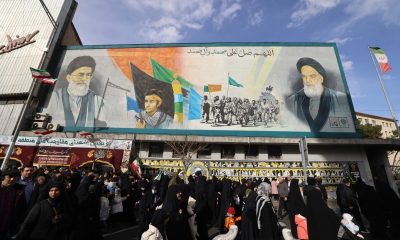
 International8 hours ago
International8 hours agoCanada accuses Iran of killing its citizen during anti-government unrest
-

 International8 hours ago
International8 hours agoSheinbaum highlights anti-drug gains after U.S. says challenges remain


























